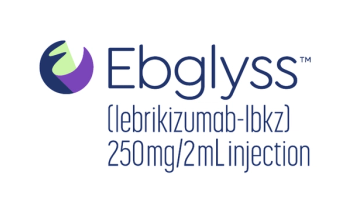
A Conversation with Alan Lotvin, M.D. | Part 2
The president of CVS Caremark discusses competition in the PBM industry, new entrants into the business, transparency and the reasons for establishing a group purchasing organization.
Second of three parts
Editor’s note: We interviewed Lotvin several weeks ago before the Federal Trade Commission announced its study of the PBM industry and before a whistleblower lawsuit was filed against the company An excerpt of the transcript of that interview ran in our
Here is secod segment of the full transcript, which has been edited lightly for clarity.
The industry has consolidated. We talk about the Big Three. It used to be the Big Five. As you know, CVS Caremark — your company — Express Scripts and OptumRx control something like three-quarters of all the scripts. So on the face of it, that seems to be market concentration. And market concentration is, generally speaking, a bad thing. It leads to anticompetitive practices. What your response?
First of all, I would say this is a really competitive industry and it's supported by a set of really, really smart consultants who are outstanding at driving down costs every year.
If you listen to our public analyst calls, we talk every year about our price erosion. Every year we talk about how our prices go down.
When I started in this industry, a common price point for retail pharmacy was AWP (average wholesale price) minus 12 for brand drugs. We're now at average wholesale price minus 19 or 20.
Sometimes for specialty drugs, when I started, it was AWP plus five.
So I think pricing, in general, has continued to come down each year in terms of the discounts off the benchmarks.
Now, you could say, “But the benchmarks are going up.”
Yes, they have been. I don't set the benchmarks. AWP is driven by wholesale acquisition costs, which are set by the manufacturers.
So, the first thing I am going to say, is that it's really a competitive industry.
The second thing I’d say is that every year there are new entrants in the business. Yes, the Big Three, Big Four, Big Five, for the past whatever amount of time have had 75% of the business.
Since Express Scripts and Medco came together in 2010 or so there have been no material mergers of size.
What’s happened is the migration to larger companies because scale really matters in this business. Scale gives you negotiating leverage with manufacturers. Scale gives you negotiating power with retail pharmacies. Scale lets you invest. I mean, we invest more just in our digital properties that talk to patients than most small PBMs are going to invest in all of their IT.
So I think what's happening is that you're seeing an advantage to being large.
And even the small PBMs usually come to the larger players to say, “Hey, can I resell your rebate program? Can I resell your network program?" Because they can't get there on their own.
I stay pretty close to these companies. When they have a really good idea, we try to build it faster.
In 2020, when I took over the PBM, we said, “Listen, our definition of transparency is we're going to show people all the data they need to understand that when we come to them with an idea, a recommendation, or a request that it's in their best interest, or their customers best interest and it is not just good for us.
And so that transparency has really resonated. Ninety-one percent of our customers last year, when we surveyed them blindly, said they think Caremark is operating in an open and transparent fashion. It’s not 100%. But it's better than it used to be.
In terms of transparency, I've heard one bone of contention is who conducts the audits and who has rights to an unencumbered audit. Could you speak to that?
Sure. So generally, what we do with our customers — particularly the larger customers — is that they have audit rights all the way back, on the rebate side, to the manufacturer contract. What we ask, though, is that the audit be done by a Big Four accounting firm, because those are folks that, number one, that's what they do. They audit. And what they don't do is PBM procurements. So there's not an inherent conflict there.
They're also not going to show up, all of a sudden, at a PBM, negotiating in the trade department for a competing PBM. So we like to use Big Four audit firms, and that is the way we do audits. And it works.
Let’s talk about the smaller PBMs. EmsanaRx is a name that has cropped up. It has been started by a purchasing group. It is promising to bring total transparency to the business and subsumed in that promise of transparency is that the PBM industry is opaque, that nobody knows how much rebate you're getting versus the price you're charging. This sort of gets back to the reputational issue. The industry is accused of being opaque and practicing dark arts. How do you respond to that? Have you changed anything? Do you accept any of that critique?
We have established an approach that says we are going to be transparent with our customers. Most of our large customers get 100% of rebates pass through to them.
And those that choose not to do that, it’s because they're saying, “Well, look, you got 14 different pricing levers. You can keep part of the rebate. I want you to give me a discount over here.“
OK. Fine. I don't care. And they have audit rights. That's number one.
Number two, many of our clients have fully transparent retail contracts. There’s no spread pricing.
“OK, you can have that, too.”
Then the last part becomes, when I go to a client and talk to them. How do I show them that whatever we're putting on the table is in their interest? So we show them the math. We show them here's choice A and here's choice B.
This is a good example. So a few years back, the PCSK9s dropped their price, dramatically. Now, their original price had a rebate associated with it, and we make rebate guarantees. When the price went down, the rebate went down.
So we went to our clients and said, “You have a choice here, right? I can keep the high-rebate, high-price product on — let's just say for argument's sake, the net prices were the same; they actually weren’t — or we can put the low-price, low-rebate one on the formulary and just adjust your rebate guarantee, and here's why it's neutral to you, neutral to us, and if anything, maybe good for your member because of the copay.”
So that's the sort of thing that we're trying to do. Historically, there has been a lot of, “I can't tell you that. It’s proprietary.” We really try not to use those words, because the reality is, we don't need to make all this stuff proprietary. We are able to share more things with customers.
Sometimes we put some box around it. We may say to a customer, if you're going to look at this level of detail, we're going to ask you to now nominate two or three people, they're going to sign a special NDA. And that's fine.
So, again, you know, there's 14 different pricing terms in a PBM model — admin fees, mail, retail specialty. I tell my customers very clearly, I'm a for-profit company. We're going to make a margin. Our margin is 3.5%, 4%. If that's too much, let's talk about it. And I want you to know where I make the margin (so) — you understand where it's coming from.
We have clients where we have margin caps. We have clients who have tremendous visibility into our financials. We have acquisition cost clients, largely in the government space.
So, yes, there are clients that are in purchasing collectives — (they are) smaller. I can't do this for 5,000 people.
But big clients that have the ability to work with large firms, they're going see a lot of data.
We have a 90% retention rate. People, they ultimately come and stay with us.
Why did you create a group purchasing organization? Isn’t a PBM a group purchasing organization?
There's two or three reasons in there. Yes, a PBM is a group purchasing organization.
In the legal sense of the word that fits into the FTC safe harbors for rebates; many PBMs were not group purchasing organizations. Now we happen to have been one.
So other PBMs chose to live in what was called the discount safe harbor. We always lived in the rebate safe harbor, in the GPO safe harbor.
But we felt that as more and more of the focus was shifting on to the rebate stream — this goes back three or four years now — we thought a couple of things were important.
Number one, we thought it was important to separate out all the different lines of business on to separate contracts. We did that, largely because we were concerned that If something happened in one line of business, we didn't want the pharmaceutical manufacturers to have control over a second line of business.
The second thing that we thought about was, if we build the group purchasing organization, and we bring in an unrelated third party, we have the ability to bring more products and services out into the market.
There are services that some of our competitors provide in the distribution space for gene therapy that we don't do right now. Could we build it ourselves? Yeah, we could build it ourselves. But it's faster if we work with partners, and have a structure to bring partners in. So it creates more flexibility for us.
Also — we haven't yet done this — but we've talked about bringing customers into some of our group purchasing organization structure where that makes sense. So where would it make sense? And I'm completely hypothesizing, but let's just say we wanted to do something around the medical benefit. Bringing some of our larger insurers into a medical benefit management GPO might make sense. I don't know if it does not, but it might make sense.
So it (a GPO) creates more flexibility to bring more products to market faster, that, ultimately, extract value on behalf of our clients, from the people who make the most money in the chain, which are the manufacturers.
Some people say group purchasing organizations were created to further obscure and maybe dodge some regulation or law coming down the pike.
I thought you're going to say hide the money, like the shell game.
Our clients, they can audit all the way back to the GPO contracts with the manufacturer. So it's not our contract with the GPO that they're auditing. They are auditing all the way back to the manufacturers.
It wasn't, at least in our mind, so much about regulation. I thought about it more that if we have a single rebate contract that covers multiple lines of business, if one line of business is impacted by a decision, if I have to go back to pharma and renegotiate, I am renegotiating from a position of weakness, so if I disaggregate them proactively now I've taken a tool away from the manufacturers. So that's how we were thinking about this.
Newsletter
Get the latest industry news, event updates, and more from Managed healthcare Executive.























